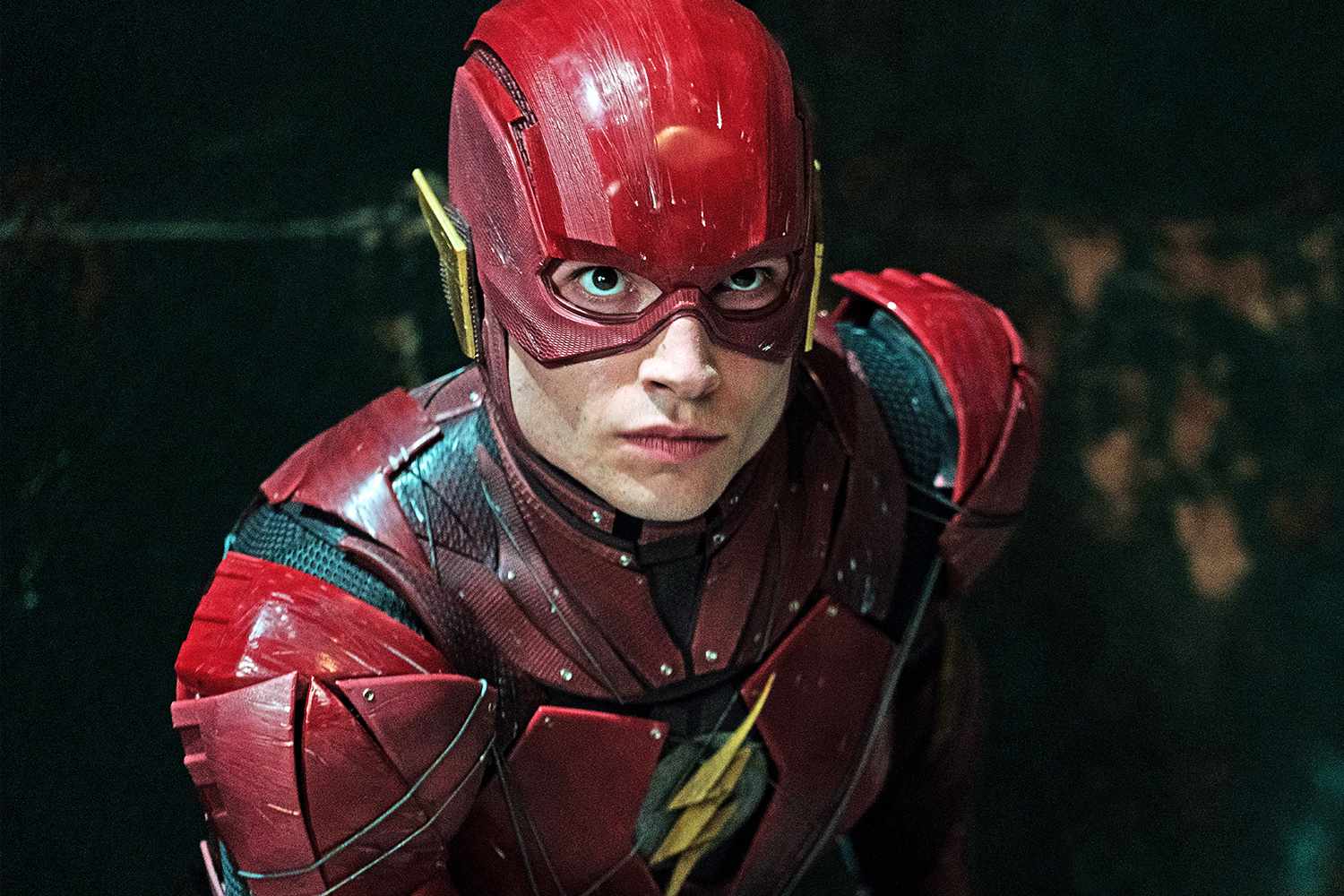The Flash Box Office Flops - Warner Bros Budget Breakdown
Warner Bros. "The Flash" box office sped to the top of North America in its first weekend, which was mostly made up of spin-offs and sequels. Early buzz seemed to lead to some good early predictions, but after a weak opening weekend and increasingly bad reviews, those predictions seem to have been busted.
Author:Alex MercerReviewer:Nathanial BlackwoodJun 22, 202321.4K Shares302.2K Views

Warner Bros. "The Flash" box officesped to the top of North America in its first weekend, which was mostly made up of spin-offs and sequels. After the film's debut at Cinemacon 2023, things are looking pretty good for what is being called the DCEU's swan song, even though Aquaman and the Lost Kingdom is still coming out this year. Early buzz seemed to lead to some good early predictions, but after a weak opening weekend and increasingly bad reviews, those predictions seem to have been busted.
The Flash Box Office Disappoints In Its First Weekend

‘The Flash’ and ‘Elemental’ disappoint at box office
By the end of April, everything pointed to The Flash starting in the U.S. with $100 million or more. That's when David Zaslav, the CEO of Warner Bros. Discovery, went on stage at CinemaCon in Las Vegas and told theater owners that it was the best superhero movie he'd ever seen.
Since The Flash was made by the former government, the powerful executive could have easily kept a poker face and stayed away from it. Zaslav instead bet like it was his own. That included getting Tom Cruise, who was still enjoying the success of Top Gun: Maverick, to watch the movie.
His positive reaction became a topic of conversation on the press tour. James Gunn, the new co-head of DC Studios and one of Zaslav's top assistants, also praised The Flash, though he toned down his praise by saying in January that it is "probably one of the greatest superhero movies ever made."No matter how you put it, expectations went through the roof.
The movie opened in 79 other countries and made $75 million, for a total of $139 million in its first week. The studio is including domestic projections for the extended four-day weekend, which are currently set at $64 million. Batman v. Superman: Dawn of Justice made $422 million in its first week around the world, while Black Adam made $140 million in its first week around the world.
But we now know that the movie bombed soon after that, making less than $400 million internationally at the box office. The Flash reportedly cost $200 million to make, and another $100 million was spent on marketing, so it needs to make around $600 million worldwide to break even.
Warner Bros. has stuck with this movie through a lot of drama behind the scenes, including a change in leadership, multiple script rewrites, and a revolving door of directors, not to mention the bad press that star Ezra Miller's personal problems brought to the project. Miller wasn't available to talk to the media in the weeks before the movie came out, but they did show up at the red carpet opening. This could be one of many reasons why the movie didn't do well when it first came out.
In the final scene of "The Flash," played by Ezra Miller, Barry Allen watches helplessly as his adventures jumping through time cause several other superhero worlds to crash into each other and be destroyed. In a strange twist, Warner Bros. is almost in the same situation, and the stakes could be almost as high.
"The Flash" is the second of four big-budget DC movies that will come out this year. "Shazam! Fury of the Gods" came out in March, and "Blue Beetle" and "Aquaman and the Lost Kingdom" will come out in August and December, respectively. But the executives who planned and approved these movies have all left the company. In their place, James Gunn and Peter Safran, the new heads of DC Studios, have said they will reboot the DC franchise in 2025, starting with Gunn's "Superman: Legacy."
The Flash was made during three different times at Warners, and it was a big part of Walter Hamada's plans for the world when he was in charge of DC Films. Hamada asked Aquaman writer David Leslie Johnson-McGoldrick to write a story for a sequel. This script would lead to a crossover event called Crisis on Infinite Earths. But those plans were thrown out when Gunn and Peter Safran got the top jobs at DC.
Even though they said in January that there wouldn't be a Flash sequel right away, they were open to Miller playing the role again, maybe as a supporting character in other projects. However, that seems less possible now that The Flash bombed. Also, the team Zaslav put together did make some changes to The Flash. Gunn and Safran were in charge of a key scene at the end of the movie.
Conclusion
When a company starts showing a movie to get people excited about it before it comes out, it's usually because the movie is good. But no one could have predicted that people all over the world would give Warner Bros.' The Flash a general shrug. The big-budget superhero movie didn't do as well as expected in its first three days in theaters in the United States, where it made only $55 million, and it didn't do much better in other parts of the world, either.

Alex Mercer
Author
Alex Mercer is a seasoned author and analyst specializing in wealth research, with a keen focus on evaluating the net worth of individuals across various industries. With over a decade of experience in financial analysis and wealth assessment, Alex has developed a nuanced understanding of the factors that contribute to an individual's financial status, from investments and assets to market trends and economic policies. His work involves in-depth reviews and analyses, providing insightful observations on wealth accumulation, management strategies, and the socio-economic implications of wealth distribution.
Throughout his career, Alex has become known for his ability to distill complex financial data into understandable and engaging narratives, making the subject of wealth and net worth accessible to a broad audience. His expertise is not just in numbers but in telling the stories behind them, highlighting the journeys, strategies, and decisions that lead to financial success or challenges. Alex's contributions to the field of wealth research are valuable resources for anyone looking to understand the dynamics of wealth in today's world, offering a unique perspective that bridges the gap between financial analysis and human interest.

Nathanial Blackwood
Reviewer
Nathanial (Nate) Blackwood is a distinguished financial journalist with a decade of experience in net worth analysis. He holds an Economics degree from the University of Finance and a Data Analysis certification, enabling him to blend thorough insights with engaging storytelling. Nate is known for making complex financial information accessible to a wide audience, earning acclaim for his precise and reader-friendly analyses. Beyond his writing, Nate is dedicated to financial literacy, actively participating in educational forums and workshops.
He is the founder of PureNetWealth, a platform that demystifies the financial achievements of public figures by exploring the strategies and decisions behind their fortunes. Nate's work bridges the gap between intricate economic concepts and the general public, inspiring a deeper understanding of wealth dynamics. Follow Nathanial Blackwood for essential insights into the financial narratives shaping our world.
Latest Articles
Popular Articles